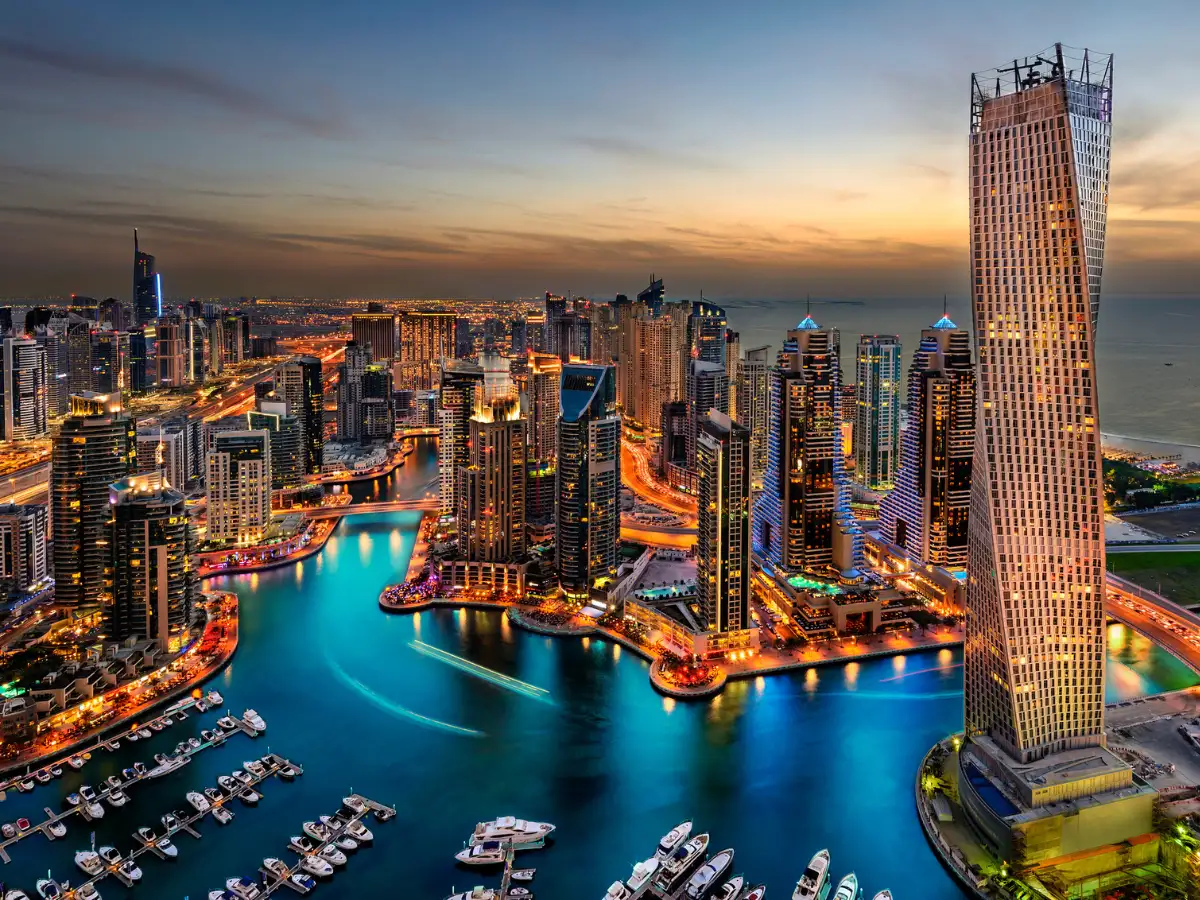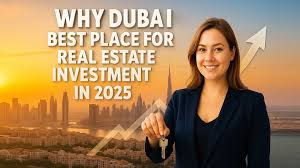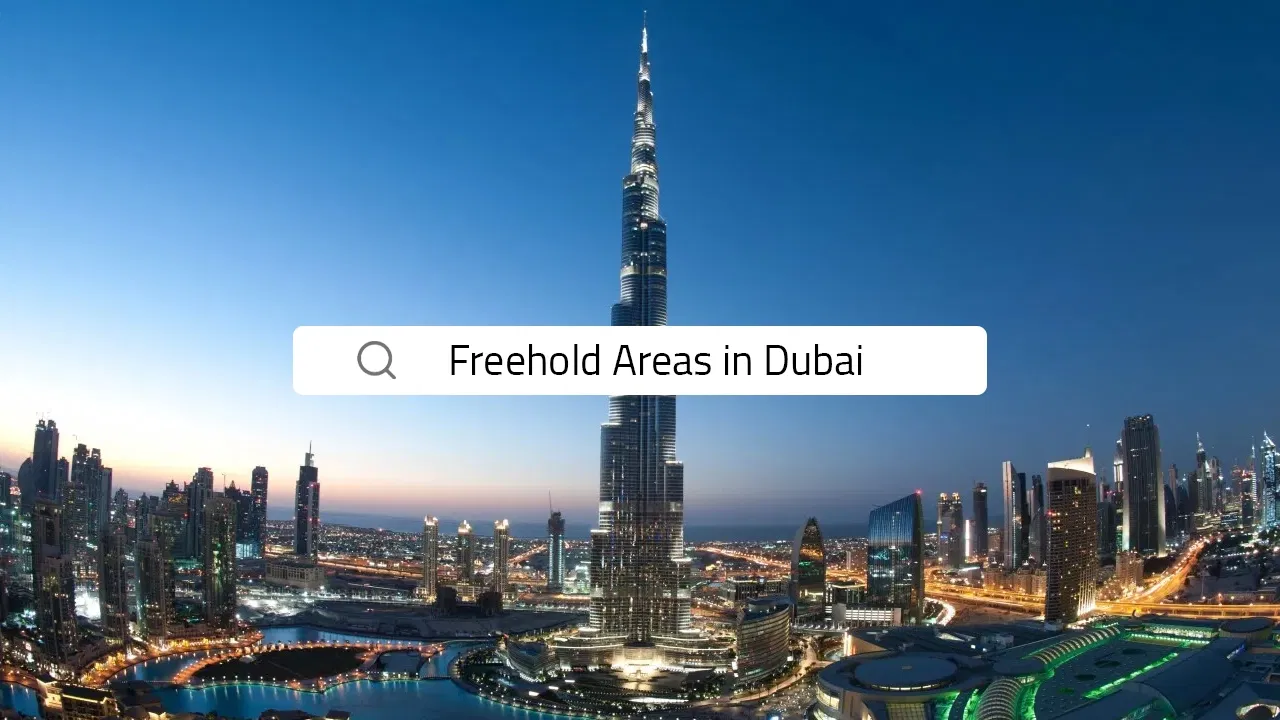Now Reading: Dubai Real Estate: 5 Top Reasons Foreigners Invest in 2025
-
01
Dubai Real Estate: 5 Top Reasons Foreigners Invest in 2025
Dubai Real Estate: 5 Top Reasons Foreigners Invest in 2025

Table of Contents
Dubai’s real estate market, valued at AED 761 billion ($207.2 billion) in 2024, remains a global investment magnet in 2025, with 8% price growth and 6–9% rental yields, per Kaizen AMS. Despite a 15% price correction risk from a 182,000–210,000-unit supply surge, per Fitch Ratings, foreign investors, who accounted for 45% of AED 412 billion ($112.2 billion) in H1 2024 transactions, are drawn to Dubai’s stability and incentives, per Gulf News. Supported by the Dubai 2040 Urban Master Plan and Economic Agenda D33, the city offers unique advantages. This guide, crafted in clear, SEO-friendly language with an engaging tone, outlines five top reasons foreigners invest in Dubai real estate in 2025, backed by data, legal insights, and risk analysis.
5 Top Reasons Foreigners Invest in 2025

1. Tax-Free Returns and High Yields
Dubai’s zero capital gains, property, and personal income taxes maximize returns, unlike global hubs like New York (1.5–2% property tax) or London (up to 28% capital gains tax), per Federal Tax Authority (FTA). Gross rental yields of 6–9% in areas like Dubai Marina and JVC outpace London’s 2.4% and New York’s 4.2%, per PHOREE Real Estate.
- Why It Attracts Foreigners: A $544,518 (AED 2 million) Dubai Marina apartment yields $43,561–$48,977 tax-free annually, vs. $13,062 post-tax in London, per economymiddleeast.com.
- Investor Action: Target AED 3 million ($816,778) properties in Downtown Dubai for short-term rentals, per Property Finder.
- Example: A $544,518 apartment yields $43,561 at 8%, appreciating to $653,422 by 2028, a $108,904 gain.
- Source: FTA, PHOREE Real Estate, economymiddleeast.com
2. Golden Visa Residency Benefits
Investments of AED 2 million ($544,518) or more qualify for a 10-year Golden Visa, offering long-term residency without sponsorship, per Dubai Land Department (DLD). In 2024, Golden Visa applications surged 25%, with 60% linked to real estate, per Gulf News. This appeals to HNWIs from Asia, Europe, and the Americas.
- Why It Attracts Foreigners: Residency enhances investment security for properties like AED 5 million ($1.36 million) Palm Jumeirah villas, per Kaizen AMS.
- Investor Action: Purchase AED 2.5 million ($680,648) JBR apartments to secure visas, per Savills.
- Example: A $680,648 apartment yields $47,645 at 7%, appreciating to $816,778 by 2028, a $136,130 gain.
- Source: DLD, Gulf News, Kaizen AMS
3. Robust Economic Stability and Safe-Haven Status
Dubai’s diversified economy, with a 3.2% GDP growth forecast for 2025, and its geopolitical neutrality make it a safe haven, per Deloitte. Foreign direct investment (FDI) in real estate hit AED 20 billion ($5.4 billion) in 2024, per Arabian Business. Areas like Business Bay offer 6.66–7% yields, per Colife.
- Why It Attracts Foreigners: Unlike volatile markets in Europe or Asia, Dubai’s stability supports investments in AED 4 million ($1.09 million) properties, per economymiddleeast.com.
- Investor Action: Invest in AED 3 million ($816,778) DIFC offices for corporate rentals, per Driven Properties.
- Example: A $816,778 office yields $57,174 at 7%, appreciating to $980,134 by 2028, a $163,356 gain.
- Source: Deloitte, Arabian Business, Colife
4. World-Class Infrastructure and Lifestyle
Dubai’s infrastructure, including DXB Airport (89.1 million passengers in 2024), metro connectivity, and luxury amenities like Dubai Mall, drives demand, per Gulf News. Prime areas like Downtown Dubai, with 6.19–6.25% yields, attract expatriates and tourists, per Global Property Guide.
- Why It Attracts Foreigners: Lifestyle appeal boosts 85% occupancy for AED 10 million ($2.72 million) properties, per GuestReady.
- Investor Action: Buy AED 6 million ($1.63 million) Dubai Hills villas for family rentals, per Emaar Properties.
- Example: A $1.63 million villa yields $114,100 at 7%, appreciating to $1.96 million by 2028, a $330,000 gain.
- Source: Gulf News, Global Property Guide, GuestReady
5. Flexible Ownership and High Appreciation
100% foreign ownership in freehold zones like Palm Jumeirah and JVC, per Law No. 7 of 2006, simplifies investment. Properties appreciate 5–8% annually, with JVC offering 7.5–8% yields and 8% growth, per Key One Realty. Off-plan projects like DAMAC Sun City provide early-bird discounts, per damacproperties.com.
- Why It Attracts Foreigners: A $326,711 (AED 1.2 million) JVC apartment yields $26,137 and appreciates faster than London’s 3%, per alba.homes.
- Investor Action: Invest in AED 1.5 million ($408,389) off-plan units in Dubai South, per Property Finder.
- Example: A $326,711 apartment yields $26,137 at 8%, appreciating to $392,053 by 2028, a $65,342 gain.
- Source: Key One Realty, damacproperties.com, alba.homes
Legal and Tax Framework

- UAE Legal Framework:
- Property Ownership: 100% foreign ownership in freehold zones, per Law No. 7 of 2006.
- Corporate Tax: 9% on taxable income above AED 375,000 ($102,103), 0% for QFZPs in DMCC/DIFC. File by September 30, 2025, per Federal Decree-Law No. 47 of 2022.
- VAT: 5% on commercial transactions, exempt for residential. Register if supplies exceed AED 375,000 by March 31, 2025, per Federal Decree-Law No. 8 of 2017.
- AML: KYC mandatory for transactions above AED 100,000, per Federal Law No. 20 of 2018. Penalties: AED 5 million ($1.36 million).
- Fees: 4% DLD transfer fee (split), AED 540–4,200 registration, per dubailand.gov.ae.
- Off-Plan Laws: Escrow accounts mandatory, per Law No. 8 of 2007; strata properties regulated by Law No. 13 of 2008.
- U.S. Tax Framework:
- Reporting: Declare rental income via Forms 1040, 1116, Schedule E under FATCA. Income taxed at 10–37%, capital gains at 0–20%, per IRS.
- Foreign Tax Credit (FTC): Offset UAE corporate tax against U.S. liability.
- FEIE: $130,800 exclusion for earned income, not rentals.
- Golden Visa: AED 2 million ($544,518) investments qualify for 10-year residency, per emirates.estate.
Risks and Mitigation
- Oversupply: 182,000–210,000 units by 2026 may moderate yields by 5–10%, per Fitch Ratings. Focus on high-demand areas like JVC, per Kaizen AMS.
- Geopolitical Risks: Regional tensions could impact tourism. Dubai’s safe-haven status mitigates this, per Deloitte.
- Developer Delays: 40% of off-plan projects face delays, per William Blair. Choose Emaar or DAMAC, verifying DLD escrow, per qbd.ae.
- U.S. Tax Burden: IRS reporting reduces returns. Maximize FTC with tax advisors, per IRS.
- Maintenance Costs: AED 10–20/sq.ft. service charges impact yields, per DubaiHousing-ae.com. Budget 5–10% of rental income.
Step-by-Step Guide for U.S. Investors
- Research Market: Target JVC, Dubai Marina, or Downtown Dubai for 6–9% yields and 5–8% appreciation, per PHOREE Real Estate.
- Set Budget: Allocate $326,711–$2.72 million, or $544,518 for Golden Visa eligibility, per TrustIn.
- Verify Developers: Confirm Emaar or DAMAC’s DLD escrow for AED 2 million ($544,518) off-plan units, per qbd.ae.
- Secure Financing: Obtain 75% LTV mortgages at 4–5% from UAE banks, budgeting 4% DLD fees, per Seven Luxury Real Estate.
- Execute Purchase: Sign RERA-registered SPAs, ensuring AML/KYC compliance, per dubailand.gov.ae.
- Ensure Compliance: Register for UAE VAT/corporate tax by March 31, 2025, if income exceeds $102,103, and U.S. taxes by April 18, 2025, with FTC, per FTA and IRS.
- Optimize Rentals: List on Airbnb or Bayut for 85% occupancy, per guestready.com and propertyfinder.ae.
- Monitor Returns: Reinvest 6–9% yields, tracking appreciation via Property Finder, per bayut.com.
Conclusion
In 2025, Dubai’s real estate market, valued at AED 761 billion, attracts foreign investors with tax-free 6–9% yields, Golden Visa benefits, economic stability, world-class infrastructure, and flexible ownership. Outpacing global markets like London and New York, areas like JVC and Palm Jumeirah offer high returns, per Kaizen AMS. U.S. investors can capitalize by targeting high-demand zones, ensuring DLD and RERA compliance, and leveraging tax strategies like FTC, aligning with Dubai’s 2040 Urban Master Plan and D33 Agenda for sustained growth. dubai
read more: 6 Crucial Tips for Navigating Mortgage Rules Safely in 2025






















